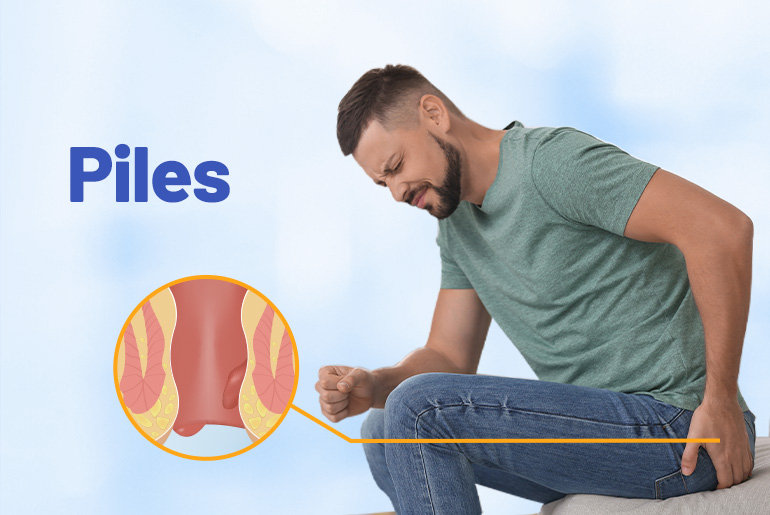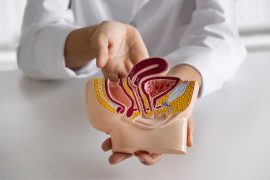Ever felt like stress has a way of making everything worse? From sleepless nights to headaches, stress can creep into all parts of life. But did you know it could also be affecting your digestive health and even making piles more severe? If you are dealing with piles, understanding how stress ties into this common condition might be the missing piece in managing it better.
What are Piles?
Piles are swollen veins in the lower rectum or anus that can cause discomfort, itching, pain, and bleeding. They are classified into two main types: internal piles, which occur inside the rectum, and external piles, which develop under the skin around the anus. Internal piles are generally less painful but can bleed, while external piles can be more painful and irritating .
Causes of Piles
- Chronic constipation
- Prolonged sitting
- A low-fibre diet
- Obesity
- Pregnancy
- Heavy lifting
- Straining during bowel movements
Although these physical factors are well-known causes of piles, emotional and psychological factors like stress can also play a crucial role [1].
The Connection Between Stress and Piles
Stress and Digestive Health
When a person is stressed, the body’s natural “fight or flight” response is activated, leading to a series of physiological changes, including the slowing down of digestion. This can cause changes in digestive system leading to constipation, which is one of the primary triggers for piles. The longer food remains in the digestive tract, the more water is absorbed, making the stool harder and more difficult to pass. This leads to increased straining, which can aggravate or even cause piles[2] .
The Role of Cortisol
When stressed, the body releases cortisol, a hormone that activates body’s stress response. Elevated cortisol levels can have various negative effects on the body that weakens the immune system, increases inflammation, and affects blood flow. In the context of piles, heightened cortisol levels can exacerbate inflammation and swelling, making the condition more painful and harder to manage[3] .
Behavioural Impact of Stress
Stress can also lead to unhealthy behaviours that may worsen piles. People under stress often neglect their diet, opting for comfort foods that are low in fibre and high in fat and sugar. These dietary choices can lead to constipation and poor digestive health, directly impacting the severity of piles. Moreover, stress can cause people to skip meals, avoid drinking enough water, or neglect exercise—all of which can contribute to the development and worsening of piles.
Tips for Managing Piles and Stress Simultaneously
Eat a High-Fibre Diet: Including plenty of high-fibre vegetables and fruits in your diet along with whole grains can prevent constipation.
Stay Hydrated: Drinking at least 8-10 glasses of water daily can keep stools soft and easier to pass, preventing strain on the rectal veins.
Practice Mindfulness: Mindful activities such as deep breathing exercises, meditation, and yoga can reduce stress and improve overall mental health, aiding in better digestive health.
Stay Active: Physical activity, such as walking, swimming, or cycling, can reduce stress and improve bowel movements, helping prevent and manage piles.
Avoid Prolonged Sitting: Long periods of sitting can increase pressure on the rectal area, worsening piles. Take frequent breaks to stand and stretch.
Use Relaxation Techniques: Stress-relieving practices such as progressive muscle relaxation, guided imagery, and aromatherapy can help manage stress levels effectively.
Conclusion
Managing piles is more than just dealing with the physical symptoms—it is about taking care of your overall well-being. Ready to take a step toward a healthier life? Start today with these simple tips, and feel the relief and comfort you deserve!
Reference Links:
[1] https://www.mayoclinic.org/diseases-conditions/hemorrhoids/symptoms-causes/syc-20360268
[2] https://www.henryford.com/blog/2021/07/how-stress-affects-digestion#:~:text=That%20includes%20digestion.,experience%20bowel%20urgency%20or%20diarrhea.
[3] https://my.clevelandclinic.org/health/articles/22187-cortisol





Comments are closed.